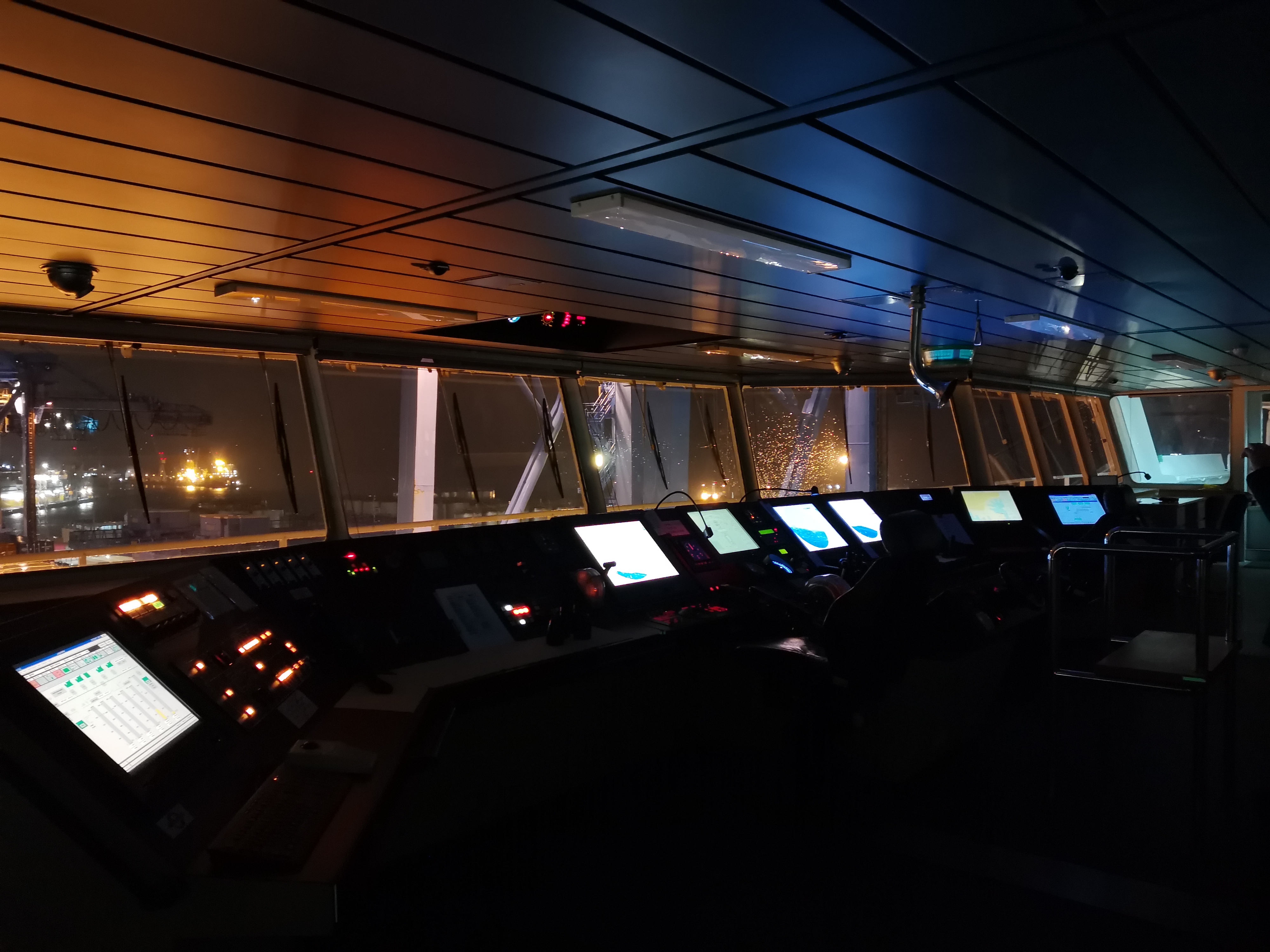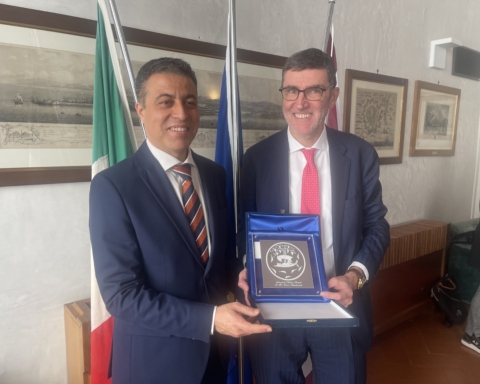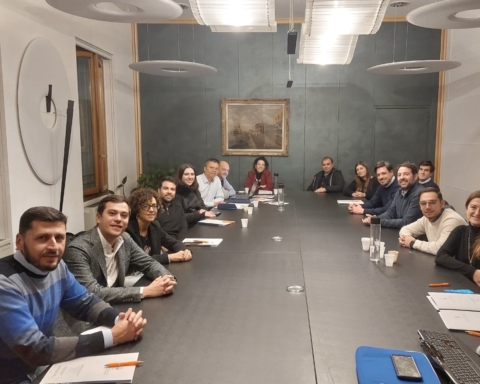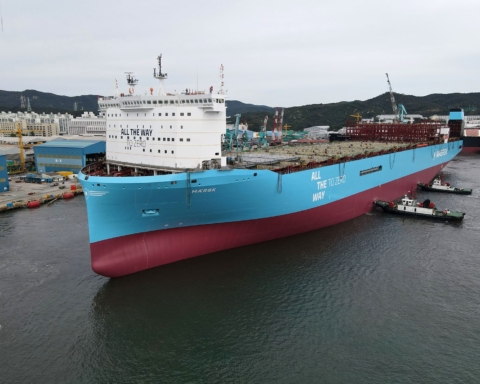Over the last few days, Maersk Italia’s decision to lay off four of its customer service employees at its Genoa office and to replace part of their work with artificial intelligence has sparked controversy.
Nowadays, there are an increasing number of cases where developments in robotics and AI techniques are rapidly gaining a foothold in various port contexts. If CGIL General Secretary, Maurizio Landini, sees technology as something neutral (“The real point,” he says, “is who uses that technology”), in the United States, however, automation processes have been seen as a wrong model of doing business, a way like any other of undermining people’s rights.
Our Port News readers are well aware of the tense situation that has arisen in US East Coast ports following APM Terminals’ decision to introduce an automated gate system capable of processing trucks without using manpower at its terminal in the port of Mobile, Alabama.
It was the bone of contention that gave rise to the conflict between the International Longshoremen’s Association (ILA) union and management represented by the United States Maritime Alliance (USMX). A conflict that degenerated into a strike and was only finally resolved a few days ago with a provisional agreement on the renewal of the dockworkers’ contract that effectively prevented further work disruptions.
Gaudenzio Parenti, you are the Director General of ANCIP (National Port Company Association). How should we approach this issue, from your point of view? Are those who fear that Artificial Intelligence (AI) is gradually replacing the human mind right?
Let’s be clear: the matter is extremely serious and of the utmost importance. The issues concerning AI and automation must, indeed, be tackled with a holistic and pragmatic approach in an organic fashion with politicians, employer and trade union organizations and with the indispensable support of experts and specialists in the field.
However, it can’t be tackled just at national level. That would be pointless. Indeed, in the transport and logistics context in general, there are international operators and supranational regulations, both European and derived from international conventions. Europe is putting much of its future on the line, also logistically. And we cannot afford to lose. If we don’t start to seriously and pragmatically tackle these revolutionary processes the not-so-distant future will soon be a dystopian scenario with the majority of port companies, especially small and medium-sized ones, disappearing from the quayside and workers being largely replaced by the now intelligent machines. We can’t just let it happen. Instead, let’s work to ensure that this revolution brings prosperity, widespread economic growth and new skills.
New skills that inevitably have to be acquired also through substantial government intervention in the form of specific training and a generational turnover that can no longer be postponed that will safeguard the sector for the next 20 years.
In his inauguration speech, the new president of Federlogistica, Davide Falteri, emphasized the importance of investing in artificial intelligence, a theme that his predecessor, Luigi Merlo, had also referred to: “I dream of a technology that can directly examine all containers,” he said. Do you think this dream can become a reality?
I don’t think it is a dream, I am absolutely convinced that in a very few years’ time it will become a tangible, widespread reality. I’ll even guess when: by 2030 many of these operations will be handled through artificial intelligence here in Italy. That’s not all, however. The potential that could develop from artificial neural networks is still unknown. It will embrace the entire supply chain process. And when I say the entire process, I am referring to every single aspect of every single link in the chain. What is perhaps not yet well understood is that what is happening is set to be the greatest revolution in the history of mankind. As such it will also significantly impact logistics and port quays.
Mr. Parenti, you were certainly one of the first to highlight the implications that AI could have on port life. The challenges for 2025 come through an increased focus on cyber security and a real interest in the potential of artificial intelligence applied to logistics cycles. Do you agree?
About three years ago, at a conference in Livorno, in which you were the moderator, I mentioned the importance of starting to discuss the implications that Artificial Intelligence would have for Italian ports. I still remember the smiles and bewildered faces of the panelists and the people present, as if they were listening to a science-fiction story. Instead, we need to look closely at what is happening, evolving and innovating in other contexts like the digital one. In fact, I am absolutely convinced that these processes must be guided from both an operational and a regulatory standpoint.
Artificial intelligence, augmented reality and automation are now present in ports and, therefore, we cannot just look the other way and pretend nothing is happening. We have to have the courage to face this challenge so that these processes are directed exclusively at improving companies’ operational efficiency and reducing people’s workloads.
Inevitably, cybersecurity has an indispensable role to play, and if not properly deployed and applied to every single process and every single company, it could create security breaches with disastrous snowball effects. The recent European Directive NIS 2 (which lays down the technical and methodological requirements of cybersecurity risk management measures for key sectors and networks) goes in this direction but, in my humble opinion, it is not sufficient: It should be updated and applied to every single company in the logistics and port chain regardless of the number of employees and the service provided, whether essential or not.

Translation by Giles Foster




